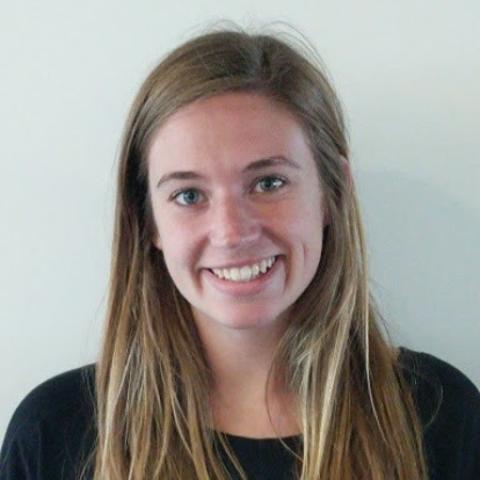As part of Case Western Reserve University’s Women in Tech Initiative, we chatted with alumna Elle Zadina (‘17, Computer Science) Chrome OS product manager at Google. She gives insights into her career at the tech giant and shares which course at CWRU stole her heart.
What does your role as a product manager at Google entail?
Product management is really fun. I have a computer science degree from CWRU, and I had two software engineering internships at Google. Through those experiences, I learned about the Associate Product Manager (APM) program. I hadn’t interacted with product managers very much, and I didn’t really know what they did. In the interview process, I answered a lot of product and estimation questions, like “How many tennis falls fit in a school bus?” Or, “How do you estimate the bandwidth that’s needed to serve Google maps?” I loved those questions.
I earned a spot in the APM program and have been a product manager ever since. The job has a lot of breadth to it. You work closely with a team of engineers and designers, and you work with cross-functional departments, such as privacy, legal, and marketing, to take a product feature from ideation, through the implementation process, to launch that feature and continue iterating. It’s an exciting process.
My day-to-day includes a ton of meetings, constant context switching, which can be both fun and challenging. I get to learn a lot and interact with smart people who are constantly teaching me new things. I really enjoy it. It's a new challenge every day.
What products have you worked on?
I work on Chrome OS — the operating system for Chromebooks, similar to the Google equivalent of Mac OS or Windows. My team owns all the system UI, so we’re in charge of the first interaction you have with the device and the surfaces you need to access to do anything or get anywhere on the device. We love it. We have a lot of fun, and it’s a critical area for people interacting on a Chromebook.
What was your pathway to working as a product manager at Google?
I made the transition from software engineering internships into a product manager in the APM program right after school. The transition was natural. I found that as a software engineer, I got a lot of technical depth, which I absolutely love, but I was interested in going beyond that technical depth to think critically about the user and to work with other functions, like marketing, legal, privacy, and other teams.
The product management role gave me more breadth and more opportunity to learn about different things that I didn't get to learn about in my degree. One thing to keep in mind is different roles at different companies will vary widely. It's helpful to understand what depth or breadth you’re looking for, and then make sure the company caters to that. A small company is going to be different than a huge company like Google.
Knowing what you know now, would you have done college differently?
I'm so grateful for my time at CWRU, particularly the computer science classes. I actually started as a civil engineer and switched into computer science. That first “Intro to Java” class I took with Professor Connamacher stole my heart. It was such a blast. The professors at CWRU were just amazing. I really look back longingly on those days of getting to sit in a classroom and solve problems.
In addition to the core computer science classes, when I think about my day now out, I am communicating constantly. I didn’t anticipate how opportunities to work with groups and to lead groups would have so much correlation to my job, but they really do.
Another skill that’s important for software engineering, and for product management in general, is prioritization. It’s something we do constantly: prioritizing features, where we spend engineering resources, where we spend design resources, where I spend my time.
As a former collegiate athlete, what role has your passion for soccer played in your education and your career in tech?
I absolutely love soccer. As an aside, if you haven't checked out CWRU’s women's soccer team, please go check them out – they had a phenomenal season this year.
Soccer impacts the way I think, the way I work, and the skills that I bring to my job every day. The teamwork is essential. When you're working on a huge software product, something as large as Chrome OS, you have so many teams coming together. It’s vital to be able to communicate, prioritize, and also know when to compromise and understand how to listen to people and what their strengths and weaknesses are. That’s how you have an efficient soccer team, and it’s also how you create an efficient product life cycle and company. I bring the skills and ambition I've learned from loving and playing soccer my whole life to my job every day. I miss soccer so much, but I have a new team within Chrome OS that brings camaraderie.
Along those lines, computer science is an awesome opportunity for incorporating your passions into your career. Almost every company has some aspect of tech in it. If you love music, if you love soccer, there's probably a way to combine your tech background and skills with your passion. I'd encourage you to foster your passions because having dual knowledge areas can be a secret weapon. Sometimes people in the music industry or in the sports industry don't have a tech background, so you can bring that edge to be able to work in your area of passion and also advance it.
Do you have any parting advice for other women interested in in working in technology?
As a woman in the tech industry, which is a male-dominated field, please support the women around you and support minorities. Different perspectives are what make products awesome, so we need to foster and encourage a diverse workforce.


